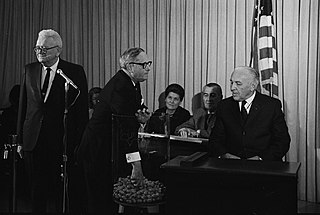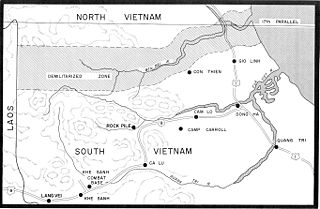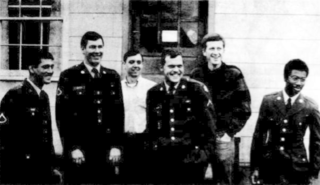Related Research Articles

Maximilian Maria Kolbe was a Polish Catholic priest and Conventual Franciscan friar who volunteered to die in place of a man named Franciszek Gajowniczek in the German death camp of Auschwitz, located in German-occupied Poland during World War II. He had been active in promoting the veneration of the Immaculate Virgin Mary, founding and supervising the monastery of Niepokalanów near Warsaw, operating an amateur-radio station (SP3RN), and founding or running several other organizations and publications.

Freedom Press is an anarchist publishing house and bookseller in Whitechapel, London, United Kingdom, founded in 1886.

A chaplain is, traditionally, a cleric, or a lay representative of a religious tradition, attached to a secular institution, or a private chapel. The term chaplaincy refers to the chapel, facility or department in which one or more chaplains carry out their role.

Conscription evasion or draft evasion is any successful attempt to elude a government-imposed obligation to serve in the military forces of one's nation. Sometimes draft evasion involves refusing to comply with the military draft laws of one's nation. Illegal draft evasion is said to have characterized every military conflict of the 20th and 21st centuries, in which at least one party of such conflict has enforced conscription. Such evasion is generally considered to be a criminal offense, and laws against it go back thousands of years.

The Vietnam War draft were two lotteries conducted by the Selective Service System of the United States on December 1, 1969, to determine the order of conscription to military service in the Vietnam War in 1970. It was the first time a lottery system had been used to select men for military service in the US since 1942, and established the priority of call based on the birth dates of registrants born between January 1, 1944 to December 31, 1950.

Daniel Joseph Berrigan was an American Jesuit priest, anti-war activist, Christian pacifist, playwright, poet, and author.

Anti-Catholicism, also known as Catholophobia, is hostility towards Catholics and opposition to the Catholic Church, its clergy, and its adherents. At various points after the Reformation, many majority-Protestant states, including England, Northern Ireland, Prussia and Germany, Scotland, and the United States, turned anti-Catholicism, opposition to the authority of Catholic clergy (anti-clericalism), opposition to the authority of the pope (anti-papalism), mockery of Catholic rituals, and opposition to Catholic adherents into major political themes and policies of religious discrimination and religious persecution. Major examples of groups that have targeted Catholics in recent history include Ulster loyalists in Northern Ireland during the Troubles and the second Ku Klux Klan in the United States. The anti-Catholic sentiment which resulted from this trend frequently led to religious discrimination against Catholic communities and individuals and it occasionally led to the religious persecution of them. Historian John Wolffe identifies four types of anti-Catholicism: constitutional-national, theological, popular and socio-cultural.

Opposition to United States involvement in the Vietnam War began in 1965 with demonstrations against the escalating role of the United States in the war. Over the next several years, these demonstrations grew into a social movement which was incorporated into the broader counterculture of the 1960s.

A military chaplain ministers to military personnel and, in most cases, their families and civilians working for the military. In some cases, they will also work with local civilians within a military area of operations.

The Vietnamese Demilitarized Zone was a demilitarized zone at the 17th parallel in Quang Tri province that was the dividing line between North Vietnam and South Vietnam from 21 July 1954 to 2 July 1976, when Vietnam was officially divided into 2 de facto countries, which was 2 de jure military gathering areas supposed to be sustained in the short term after the First Indochina War.

Vietnam Veterans Against the War (VVAW) is an American tax-exempt non-profit organization and corporation founded in 1967 to oppose the United States policy and participation in the Vietnam War. VVAW is a national veterans' organization that campaigns for peace, justice, and the rights of all United States military veterans. It publishes a twice-yearly newsletter, The Veteran; this was earlier published more frequently as 1st Casualty (1971–1972) and then as Winter Soldier (1973–1975).
The 1971 May Day protests against the Vietnam War were a series of large-scale civil disobedience actions in Washington, D.C., protesting the United States' continuing involvement in the Vietnam War. The protests began on Monday morning, May 3 and ended on May 5. In all, more than 12,000 people were arrested, in what was the largest mass arrest in U.S. history.
Maximilian of Tebessa, also known as Maximilian of Numidia, was a Christian saint and martyr, whose feast day is observed on 12 March. Born in AD 274, the son of Fabius Victor, an official connected to the Roman army, Maximilian was obliged to enlist at the age of 21. He is noted as the earliest recorded conscientious objector, although it is believed that other Christians at the time also refused military service and were executed.

Sir! No Sir! is a 2005 documentary by Displaced Films about the anti-war movement within the ranks of the United States Armed Forces during the Vietnam War. The film was produced, directed, and written by David Zeiger. The film had a theatrical run in 80 cities throughout the U.S. and Canada in 2006, and was broadcast worldwide on Sundance Channel, Discovery Channel, BBC, ARTE France, ABC Australia, SBC Spain, ZDF Germany, YLE Finland, RT, and several others.

The Movement for a Democratic Military (MDM) was an American anti-war, anti-establishment, and military rights organization formed by United States Navy and Marine Corps personnel during the Vietnam War. Formed in California in late 1969 by sailors from Naval Station San Diego in San Diego and Marines from Camp Pendleton Marine Base in Oceanside, it rapidly spread to a number of other cities and bases in California and the Midwest, including the San Francisco Bay Area, Long Beach Naval Station, El Toro Marine Air Station, Fort Ord, Fort Carson, and the Great Lakes Naval Training Center.

Draft evasion in the Vietnam War was a common practice in the United States and in Australia. Significant draft avoidance was taking place even before the United States became heavily involved in the Vietnam War. The large cohort of Baby Boomers and late Silent Generationers allowed for a steep increase in the number of exemptions and deferments, especially for college and graduate students. More than half of the 27 million men eligible for the draft during the Vietnam War were deferred, exempted or disqualified.

The Intrepid Four were a group of United States Navy sailors who grew to oppose what they called "the American aggression in Vietnam" and publicly deserted from the USS Intrepid in October 1967 as it docked in Japan during the Vietnam War. They were among the first American troops whose desertion was publicly announced during the war and the first within the U.S. Navy. The fact that it was a group, and not just an individual, made it more newsworthy.

The Fort Lewis Six were six U.S. Army enlisted men at the Fort Lewis Army base in the Seattle and Tacoma, Washington area who in June 1970 refused orders to the Vietnam War and were then courts-martialed. They had all applied for conscientious objector status and been turned down by the Pentagon. The Army then ordered them to report for assignment to Vietnam, which they all refused. The Army responded by charging them with "willful disobedience" which carried a maximum penalty of five years at hard labor. The six soldiers were Private First Class Manuel Perez, a Cuban refugee; Private First Class Paul A. Forest, a British citizen from Liverpool; Specialist 4 Carl M. Dix Jr. from Baltimore; Private James B. Allen from Goldsboro, North Carolina; Private First Class Lawrence Galgano from Brooklyn, New York; and Private First Class Jeffrey C. Griffith from Vaughn, Washington. According to the local GI underground newspaper at Fort Lewis, this was the largest mass refusal of direct orders to Vietnam at the base up to that point in the war. Their refusal and subsequent treatment by the Army received national press coverage.

The GI Underground Press was an underground press movement that emerged among the United States military during the Vietnam War. These were newspapers and newsletters produced without official military approval or acceptance; often furtively distributed under the eyes of "the brass". They were overwhelmingly antiwar and most were anti-military, which tended to infuriate the military command and often resulted in swift retaliation and punishment. Mainly written by rank-and-file active duty or recently discharged GIs, AWOLs and deserters, these publications were intended for their peers and spoke the language and aired the complaints of their audience. They became an integral and powerful element of the larger antiwar, radical and revolutionary movements during those years. This is a history largely ignored and even hidden in the retelling of the U.S. military's role in the Vietnam War.
References
- ↑ Hearings, Committee of the Judiciary, House of Representatives, 1974. – Underground newspapers, anti- military lawyers, off-base coffee houses, the Order of Maximilian ("a community of turbulent priests and clergymen, some unfrocked, calls itself the Order of Maximilian.")
- ↑ Amex-Canada. Amex-Canada Enterprises. 1971. Retrieved 25 January 2013.
- 1 2 "Vietnam: The collapse of the armed forces - Marine Colonel Robert D. Heinl Jr. | libcom.org". libcom.org. Retrieved 2024-02-28.
- ↑ Amex-Canada. Amex-Canada Enterprises. 1971. p. 17. Retrieved 19 May 2013.
- ↑ Marvin E. Gettleman (1985). Vietnam and America: A Documented History . Grove Press. p. 326. ISBN 978-0-394-62277-4 . Retrieved 19 May 2013.